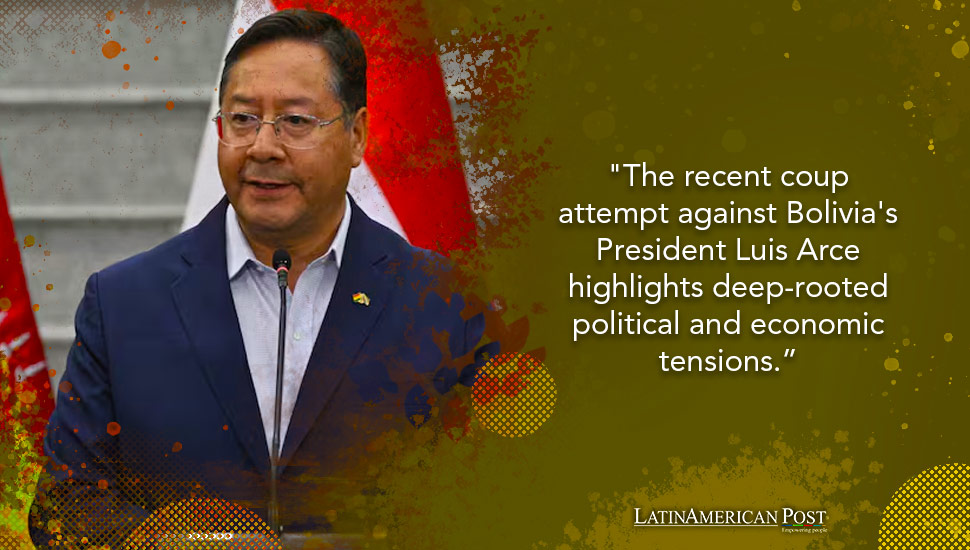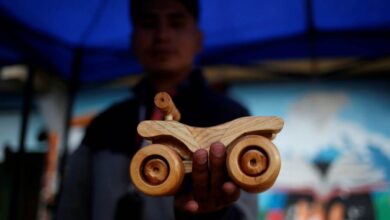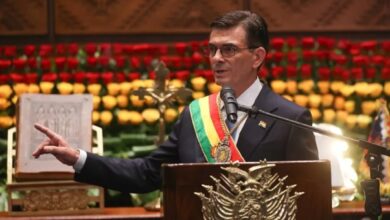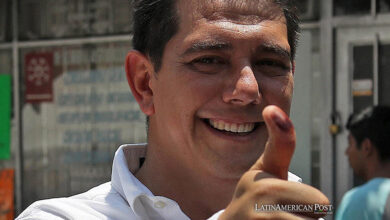The Roots of Bolivian Coup Attempt and Path Forward

The recent coup attempt against Bolivia’s President Luis Arce highlights deep-rooted political and economic tensions. This incident underscores the ongoing struggle between leftist ideals and neoliberal policies, reflecting the country’s turbulent history and current challenges.
The recent attempted coup in Bolivia against President Luis Arce has garnered significant global attention, revealing the complex interplay of political and economic forces in the Andean nation. Arce, a 60-year-old leftist leader, has been viewed as an opponent of Washington-backed free-market and neoliberal policies. His career, deeply intertwined with Bolivia’s economic trajectory, paints a picture of a country grappling with internal strife and external pressures.
Luis Arce studied economics in London and served as the economy minister under President Evo Morales from 2006 to 2019. During Morales’ tenure, Bolivia experienced significant economic growth, often called the “Bolivian Miracle.” A boom in metals and hydrocarbon prices drove this period of prosperity. However, the country has faced severe challenges since then, with the COVID-19 pandemic exacerbating existing social and economic tensions.
Arce’s career in Bolivia’s Central Bank from 1987 to 2006 and subsequent role as economy minister positioned him at the heart of the country’s economic policies. Under Morales, Bolivia saw significant infrastructure investments, reduced poverty, and overall economic growth. The country transitioned from a low-income to a middle-income nation, with extreme poverty rates falling to 15%. Infrastructure projects such as highways and cable cars spurred urban growth and development.
However, this period of economic boom began to wane around 2014 as global commodity prices fell. By the time Arce took office in November 2020, Bolivia was reeling from the pandemic’s impact and the social unrest that followed Morales’ controversial exit in 2019. The country’s economy was in its worst recession in 40 years. Arce inherited an economy struggling with decreased revenues from its once-lucrative natural resources sector.
Economic Challenges and Social Tensions
Upon assuming the presidency, Arce faced the daunting task of revitalizing an economy struck by external shocks and internal mismanagement. He acknowledged that Bolivia’s gasoline and diesel production could no longer meet national consumption needs. The country now imports 86% of its diesel and 56% of its gasoline, highlighting a significant gap in energy production.
Additionally, Bolivian households have been burdened by rising food prices, further straining the public’s patience and trust in the government. The economic hardships have intensified social tensions, particularly as the public grapples with high unemployment rates and declining living standards.
Tensions within the ruling Movement for Socialism (MAS) party have also contributed to the instability. Arce’s relationship with Morales, the party’s influential leader, has been fraught with conflict. While Morales’ policies during his presidency helped lift many Bolivians out of poverty, his controversial attempt to secure a fourth term in office led to widespread protests and his eventual resignation under military pressure.
Political Instability and the Coup Attempt
The coup attempt against President Arce manifests the deep-seated political divisions in Bolivia. On the night of the coup, Bolivian television captured dramatic scenes of Arce confronting General Juan José Zúñiga, the apparent leader of the rebellion, in the government palace. Arce’s resolute response, “I am your captain, and I order you to withdraw your soldiers, and I will not allow this insubordination,” highlighted the fragile state of Bolivia’s democracy.
The coup attempt was not entirely unexpected. In November, Arce warned of potential threats to his government, accusing his opponents of “dreaming of new coups d’état.” This rhetoric reflects the ongoing struggle within the MAS party and the broader political landscape. The rift between Arce and Morales symbolizes the tension between the old guard and the new leadership within the leftist movement.
Morales’ supporters remain a powerful force in Bolivian politics, and their loyalty to him has often put them at odds with Arce’s administration. The coup attempt can be seen as an extension of this internal conflict, as factions within the military and political establishment vie for power and influence.
The Path Forward: Addressing Root Causes
For Bolivia to move forward, it must address the root causes of its political and economic instability. This includes bridging the divide within the MAS party and fostering a more inclusive political dialogue. A key aspect of this is Arce’s administration focusing on economic reforms that can revive the energy sector and reduce the country’s import dependence.
Investment in alternative energy sources, such as renewable energy projects, could provide a sustainable solution to Bolivia’s energy crisis. Additionally, addressing the structural issues in agriculture and food distribution can help stabilize food prices and improve living standards for the average Bolivian.
Strengthening democratic institutions is also crucial. Ensuring the independence of the judiciary and other branches of government can check executive power and prevent future coups. Engaging with international allies and organizations can help bolster Bolivia’s democratic processes and provide the necessary support for economic recovery.
The Path Forward: Fostering Regional Cooperation
The attempted coup against President Luis Arce underscores the fragility of Bolivia’s political and economic landscape. The country’s journey from economic boom under Evo Morales to the current state of recession and political strife highlights the challenges facing Arce’s administration. Addressing these challenges requires a multifaceted approach, focusing on economic reform, political stability, and regional cooperation.
Bolivia’s future depends on its ability to navigate these complex issues and build a resilient, inclusive democracy. The path forward will not be easy, but with concerted efforts from the government, civil society, and the international community, Bolivia can overcome its current crises and emerge stronger.
Also read: Bolivia’s Jesuit Order Fails in Addressing Abuse Allegations
As Bolivia strives to stabilize and grow, the lessons learned from this turmoil will be crucial in shaping a more resilient and prosperous nation. The resilience and determination of the Bolivian people will play a vital role in this journey as they work towards a future marked by peace, stability, and sustainable development.





